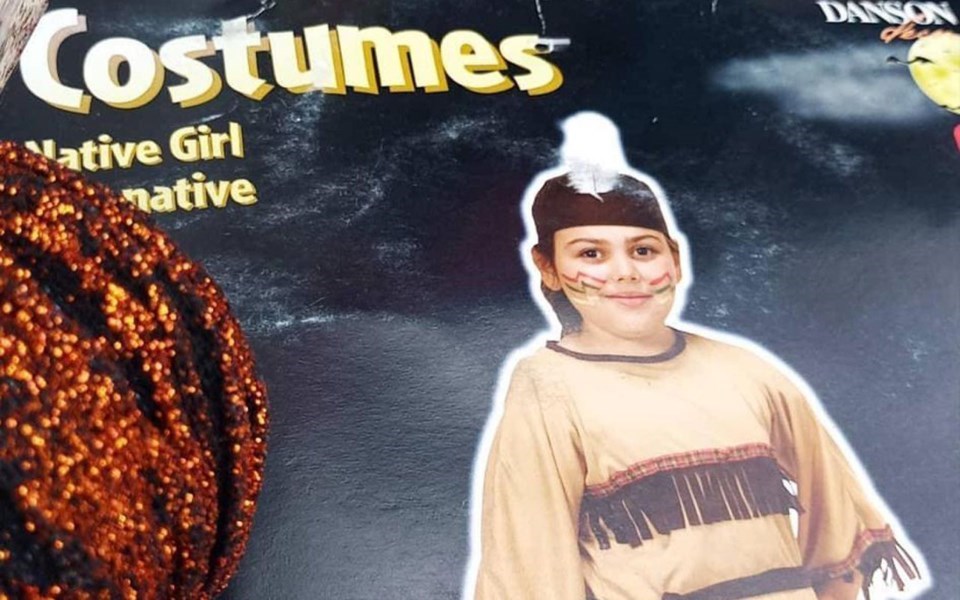When Hallie Cooper’s friend snapped a photo of a “Native Girl” costume at a Pemberton store recently and sent it to her friend text group, Cooper was upset.
“I don’t necessarily speak up on things like this,” she said. “I’m not quick to jump on anything, but I was just like enough of this. I see it online all the time. I see other people fighting for the same rights. I knew on Facebook I’d have a lot of friends and family who would feel the same way, but I didn’t know it was going to get more attention.”
Cooper, who is from the N’Quatqua Nation, shared a simple post to her personal Facebook page on Wednesday, Oct. 21, that expressed her disappointment in the store, Small Potatoes Bazaar.
“This is cultural appropriation,” she wrote. “Culture appropriation means unacknowledged or inappropriate adoption of the practices, customs, or aesthetics of one social or ethnic group by members of another (typically dominant) community or society.”
By Friday, the post had garnered 124 shares.
“It makes me angry because I myself just don’t dress up as someone else’s culture just for fun because I know that’s disrespectful,” Cooper said. “It makes me so angry to see that this is still an issue.”
On Friday, after hearing from community members, Sweda Franken, owner of the store, said they had removed all ethnic costumes from their shelves.
“Small Potatoes Bazaar would like to thank those who shared their concerns,” she said in an email and also on the store’s Facebook page. “Their voice has been heard and we recognize this costume is offensive. We formally apologize to all local Indigenous people. We have removed all ethnic costumes and will not be carrying such costumes going forward. We value the local Indigenous communities and look forward to continuing to connect in meaningful ways.”
Before the post, Cooper said she wanted to see the costume removed—and for everyone to think a little more deeply about what kind of costumes they choose.
“I would like … for more people to be open-minded and more educated on being more respectful to others,” she said. “I think most of the time we tend not to think about our actions too much. When it comes to race and culture, [I’d like people] to be more aware, more educated, to acknowledge your mistake, accept it, and learn from it and apologize.”
While many people brush off ethnic or cultural costumes as “no big deal” or “just for fun,” in the case of Indigenous costumes, it can downplay historical events like residential schools, which attempted to quash that culture, Cooper said.
“When people say, ‘It’s not a big deal,’ speaking towards Native and Indigenous residential schools, we’re being pushed under the rug again, being forgotten about—our culture is being forgotten about,” she said. “People saying, ‘It’s not a big deal’ is making it OK when it’s not.”



